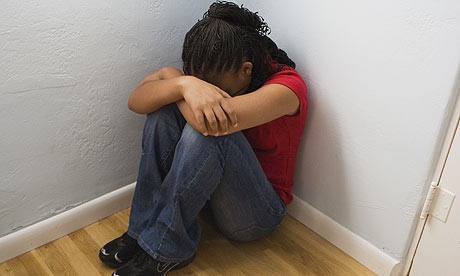Today’s assessment comes courtesy of Heidi. Her heroine got pregnant when she was 17 and had the baby, but her parents forced her to give the baby up for adoption. She is married, but not to the baby’s father, and has lived over twenty years since the incident mentioned above, which has molded her into the person she is today. She blames her parents for the adoption and doesn’t consider herself at fault (premarital sex and all).
Heidi wants to know the following:
1) If someone has PTSD and they are triggered, would they have “panic attacks” or something that would send them to the hospital for a few days? My character has depression more than PTSD, but I need her to end up in the hospital for a night or two to be monitored—what can she have?
2) What would happen if someone with PTSD tried to regulate their medicine, either by not taking it or taking less or none from time to time?
Great questions to get us started, and I like that you already have a working diagnosis! That can and should serve as the framework for the character.
PTSD—or posttraumatic stress disorder—is an anxiety disorder with a fairly high prevalence (about 8% of adults). It is characterized by reexperiencing an extremely traumatic event accompanied by increased arousal (exaggerated startle response, irritability/angry outbursts, hypervigilance, etc). Yes, if she is triggered, a panic attack would be something she could experience. You’d want to incorporate many of the following symptoms into your portrayal of a panic attack to make it very realistic:
1) Pounding heart, increased heart rate
2) Sweating
3) Shaking or trembling
4) Sensations of shortness of breath/being smothered/choking
5) Chest pain/discomfort
6) Nausea/abdominal distress
7) Faint, lightheaded, dizzy, unsteady
8) Fear of losing control or going crazy or dying
9) Parathesias (numbness or tingling sensations)
10) Chills and hot flushes
11) Derealization (feelings of unreality) and depersonalization (feelings of being detached from oneself)
While any and all of these symptoms would be uncomfortable, scary, and upsetting, likely most people would not end up in a hospital because of a panic attack. (There will always be exceptions, however.) My suggestion is to have her pass out from hyperventilation and she could hit her head on something and then that would require monitoring at a hospital.
People with PTSD also avoid anything associated with their trauma. So Heidi’s character would likely avoid talking about adoption, wouldn’t want to be in a hospital (where I assume she was forced to give the baby up) or an adoption agency. So I’d add a few of these telling type scenes to really up the tension factor when she does have to go to hospital. The reader will know this is a big deal.
But since Heidi mentioned her heroine is also depressed, I would be remiss in pointing out an option that would definitely land her in a hospital for evaluation: suicidal ideation. In California, if a person is deemed by a health care professional to be a risk to themselves or others, they can be checked into a mental hospital for observation for 24-72 hours. You might not want to go this dark route, though.
As for your second question about medications, I’m afraid I can’t help you. I’m a therapist, not a psychiatrist (who can prescribe and advise patients on medication). I would refer a patient who was self-regulating her medications back to the doctor who prescribed the medication. Maybe a medical doctor could help you with the physiological reactions you could incorporate into your book. Sorry I can’t be of more help there, but hopefully I’ve given you some other things to chew on.
This service is for fictional characters only, so any resemblance to real life examples is entirely coincidental. Any other fictional character assessment questions can be directed to charactertherapist@hotmail.com.

























